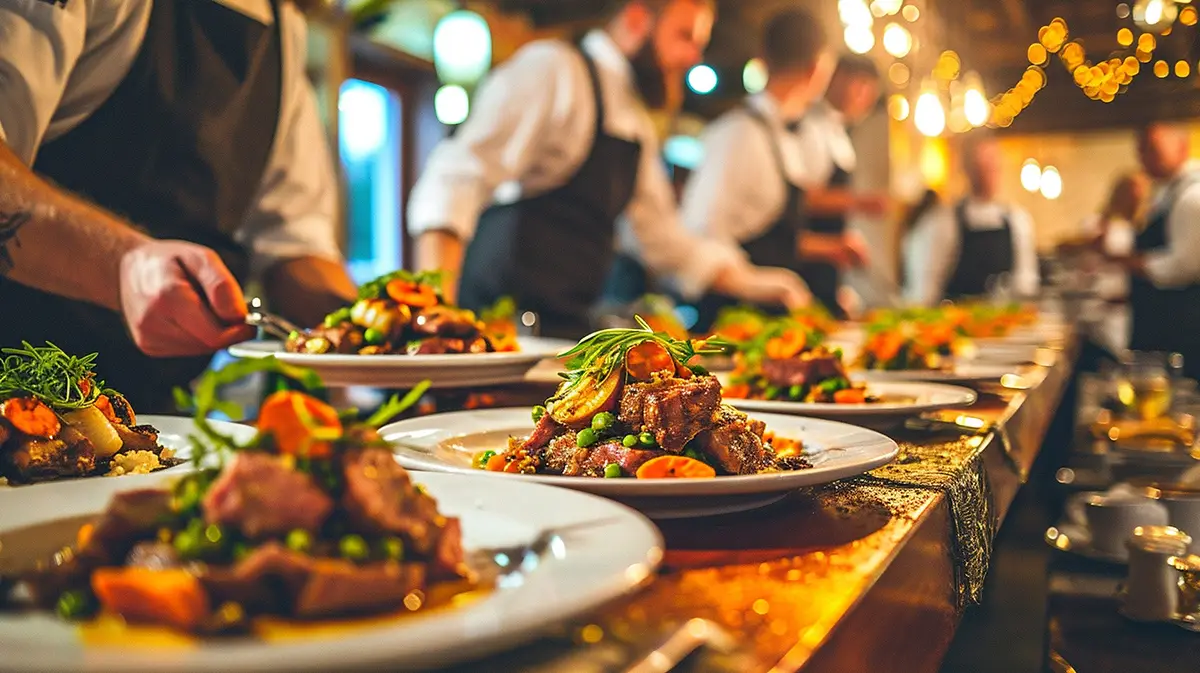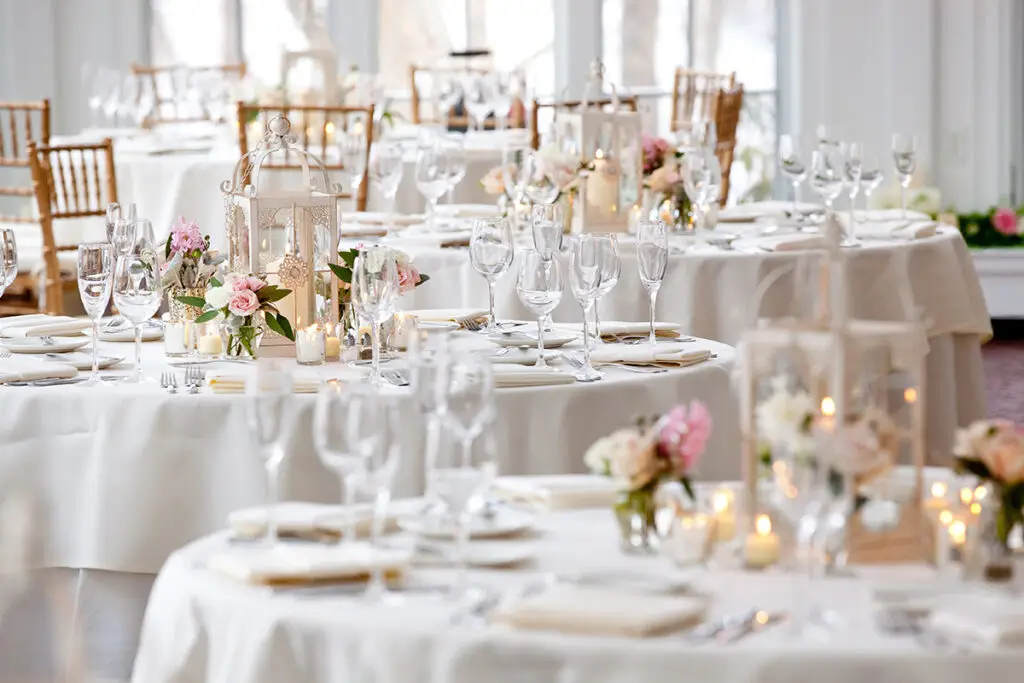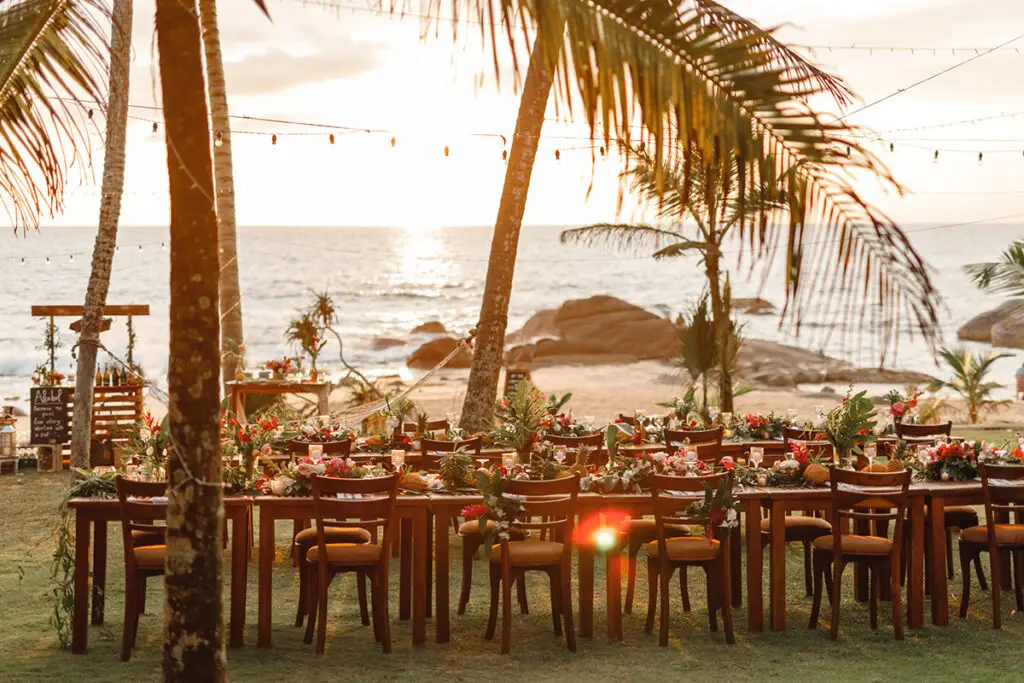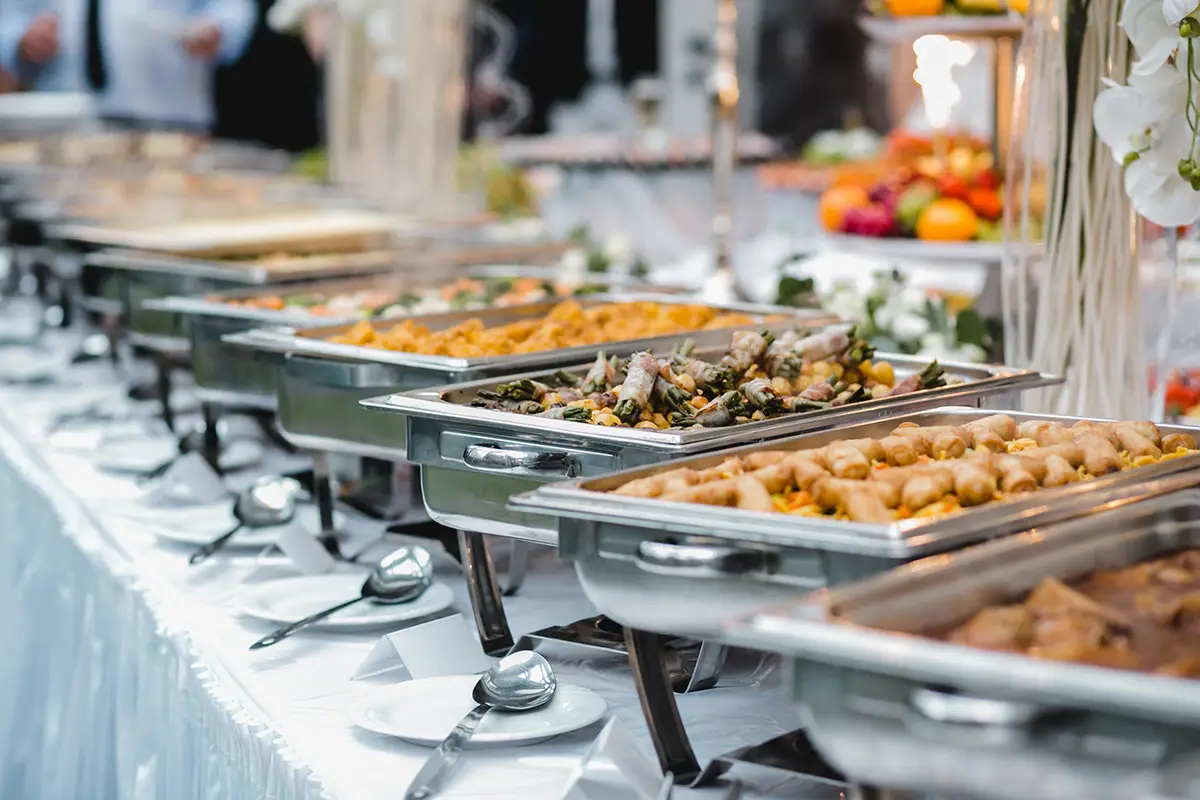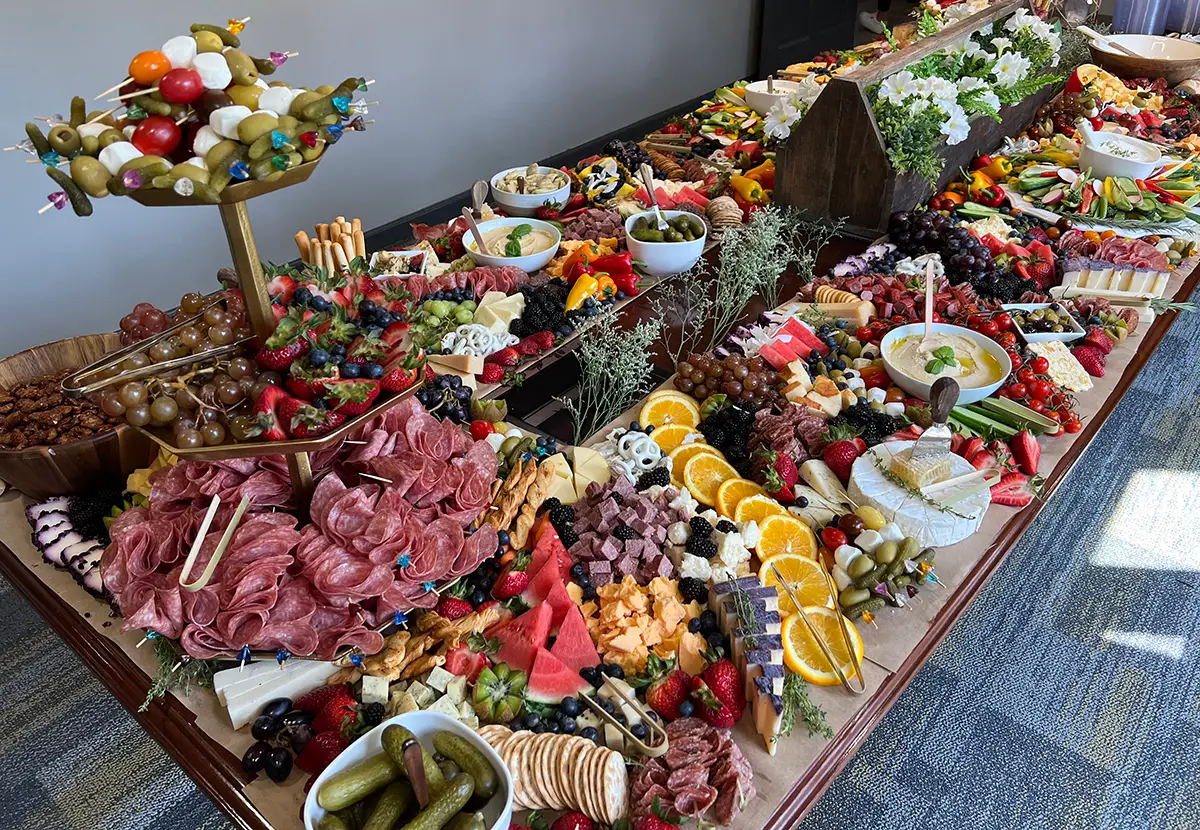How Much Does Catering Cost for a Wedding? Secrets Revealed!
Are you planning a wedding and asking yourself, how much does catering cost for a wedding? You’re not alone! Many couples face questions like: How much will it really cost to feed each guest? What factors can drive prices up or down? And, most importantly, how can we stay within budget?
According to WeddingWire’s latest study, catering is often one of the largest expenses associated with a wedding! With so many options—buffets, plated dinners, family-style meals—understanding what affects these costs can help you make the right choice for your big day.
Let’s dive into the factors to consider and discover tips for keeping your catering memorable and within your budget!
How Much Does Catering Cost for a Wedding?
Wedding catering costs typically range from $30 to $90 per guest, influenced by factors like number of guests, menu complexity, service style, and location. Catering may vary based on local food costs and vendor availability.
Average catering prices can escalate for more luxurious or elaborate menus. Opting for cost-effective catering solutions, such as a buffet or family-style service, can help manage expenses while providing a memorable experience.
Catering in Lansing Michigan offers a range of prices influenced by local vendors and seasonal availability. Cost-effective catering solutions include choosing simpler menus or buffet-style service, typically requiring less staff.
Creating a Catering Budget for Your Wedding
Wedding catering can cost between 20–40% of a your total wedding budget. With such a high percentage of your overall costs, it’s important to choose your budget and make sure you stick to it! Going over budget on catering could end up costing you thousands of dollars. Creating a catering budget for your wedding starts with setting a clear financial goal based on your total budget. Begin by estimating the catering cost per person, which will help you determine the bulk of your expenses.
Factor in different catering options like buffet, plated, or family-style, and consider the associated costs of each. Don’t forget to include additional expenses such as service charges, gratuities, and taxes, which can significantly affect your overall wedding catering cost.
Catering Cost Analysis: Breaking Down the Basics
Breaking down the basics of catering cost analysis starts with knowing your headcount. Seriously, how many guests are we talking about? Each plate counts. And remember, catering pricing isn’t just about the food. You’re also paying for service, setup, and cleanup.
For wedding catering, the costs can add up quickly. Think about it: average catering prices hinge on whether you go buffet or plated. Buffet might seem cheaper, but is it really what you want?
Location
Location matters as well. Catering services in Lansing will differ from those in New York City, as each location has unique catering policies. Some venues require you to use their in-house caterers, while others allow you to select a catering company of your choice. Regardless of the option, there are always associated fees.
Style
Let’s talk style— The top three wedding styles; Traditional, Destination, and Micro Weddings; affect overall wedding costs in distinct ways.
1. Traditional Wedding Style
Traditional weddings tend to be high-cost events compared to other styles due to the focus on formality, larger guest lists, and comprehensive vendor services. Unlike micro or backyard weddings, traditional weddings have less flexibility in reducing expenses without compromising the desired experience
2. Destination Wedding Style
Destination weddings can range from moderate to high cost, depending on the location and travel expenses. However, they are generally less expensive than traditional weddings because they involve fewer guests and offer the option of all-inclusive packages, which can help manage costs.
In contrast to at-home or backyard weddings, destination weddings require more logistical planning and travel, which can drive up expenses.
3. Micro Wedding Style
Micro weddings typically fall in the moderate-cost range, making them less expensive than traditional weddings but potentially more costly than elopements or backyard weddings due to higher quality investments in certain areas.
Compared to traditional weddings, the savings on guest-related expenses are substantial while still allowing room for a memorable and upscale experience.
Get clear on your needs, then dig into the details. The more you know, the better you can budget. Plus, who doesn’t love good food that doesn’t blow the budget? Cost-effective catering solutions are out there—you just need to look!
Average Catering Prices: What Couples Typically Spend on Average
According to The Knot 2023 Real Weddings Study, which surveyed nearly 10,000 newlyweds, the average price was $85 per person. There wasn’t a big difference in the average cost of wedding catering when the guest count came into play.
For weddings with one to 50 guests, the average catering cost was $85 per person. For weddings with 51 to 100 guests, the average was $84 per person. Couples with over 100 loved ones on their guest list spent an average of $86 per person. The price largely depends on the choice of menu and the style of service.
Opting for a buffet can reduce the catering cost per person, while a formal plated service may increase expenses. Specialty dishes, such as seafood or steak, can also elevate the average catering prices.
Wedding Catering Cost Factors: What Influences Your Bill?
Wedding catering cost is shaped by several factors that can significantly influence the overall expense. The number of guests, type of menu, service style, and venue location are primary drivers of cost.
1. Guest Count and Menu Selection
When planning your wedding, the guest count really influences the overall catering cost per person. More guests? Bigger bill. But here’s where you can play it smart with your menu.
Opting for cost-effective catering solutions, like picking seasonal dishes or simpler meals, can keep costs down without skimping on taste. Think about it: a streamlined menu that everyone loves is totally doable and budget-friendly.
Let’s also not forget about the power of simplicity. Opting for a less elaborate menu can really help keep your wedding catering costs down. Think hearty, filling dishes that are beloved classics—these often cost less to make but are always a hit with guests. So, saving on your big day is totally doable with a bit of clever planning!
2. Venue Location and Setup Requirements
The venue location plays a significant role in influencing the catering cost per person. Hosting your wedding in a metropolitan area or a high-demand location typically drives up prices due to higher operational costs for caterers.
The specific setup requirements of your chosen venue can also affect costs. If your venue doesn’t have a kitchen, caterers may need to bring in additional equipment, which could increase your expenses. Venues that require extra staff for setup, takedown, and service can also add to the bill.
It’s important to consider both location and logistical needs when budgeting for wedding catering to find cost-effective catering solutions.
3. Service Style (Buffet, Plated, Family-Style)
When deciding on the service style for your wedding—be it buffet, plated, or family-style—keep in mind how each affects your catering costs. Each option comes with pros and cons and it will be up to you to decide what’s most important for your big day.
A wedding buffet presents several advantages, including a broad selection of food options that accommodate different dietary needs and create a relaxed setting where guests can mingle freely.
However, drawbacks include the potential for long lines, a less formal feel, and the risk that late-arriving guests may miss out on certain dishes if they’re depleted quickly.
Successful buffet receptions require thoughtful planning and close collaboration with the caterer to ensure a smooth and enjoyable experience for all guests.
A plated meal at a wedding is often seen as more elegant, providing benefits such as precise portion control, an organized dining flow, and easier coordination of activities between courses
However, it also has drawbacks, including fewer menu choices for guests, challenges in accommodating various dietary needs, and possibly increased costs due to the need for more staff to serve each course individually.
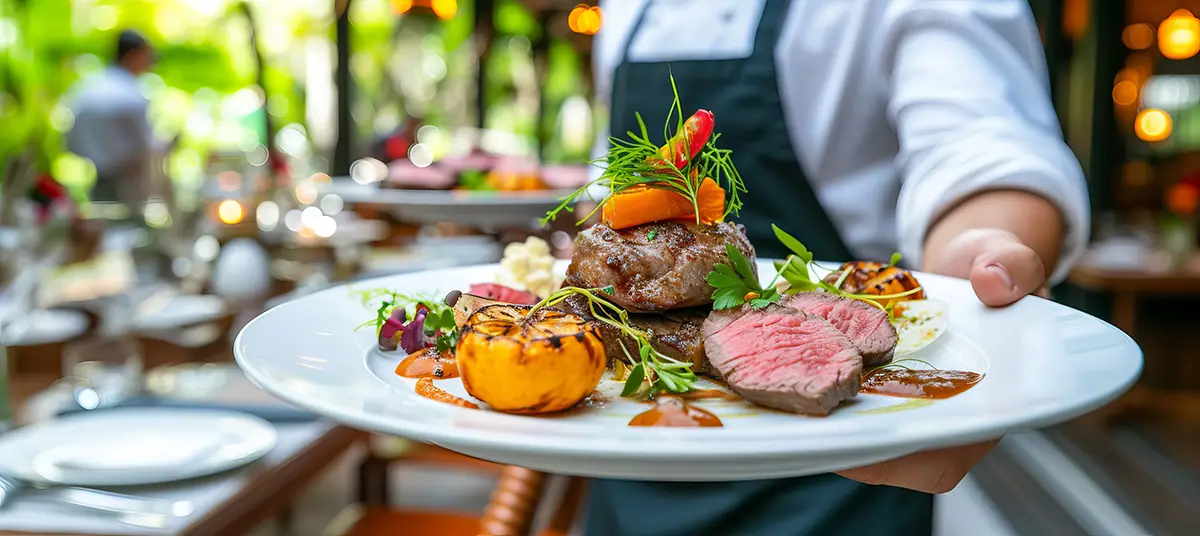
Waiter serving a delicious plated meat dish at an outdoor wedding reception
Family-style catering at a wedding creates a warm, interactive atmosphere, allowing guests to share dishes and sample a range of foods.
However, it has some downsides, such as the possibility of a messy table, the need for larger quantities of each dish, and limited portion control since guests serve themselves from shared platters.
This style may be less ideal for highly formal weddings or large tables where passing dishes around could become impractical. Each style brings a different vibe and cost to your wedding, so it’s all about what fits your vision and budget best!
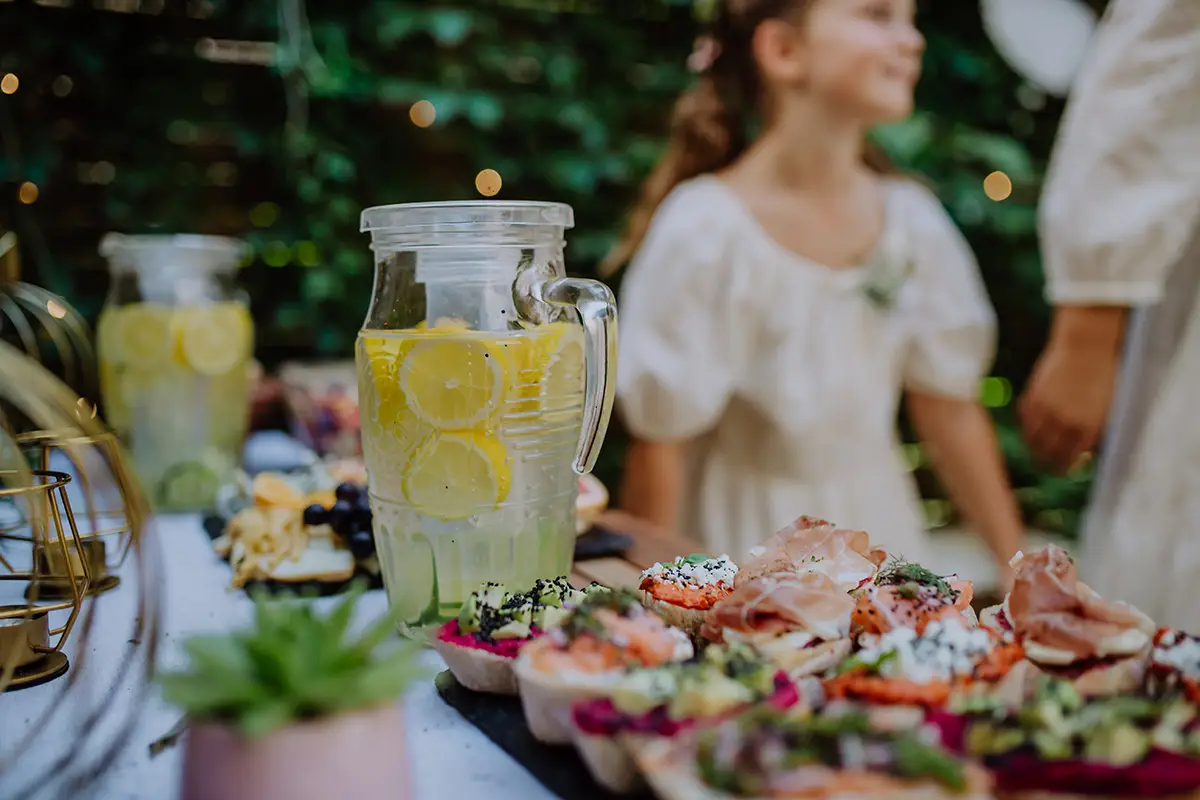
A close-up of catering for a small wedding reception outside in the backyard.
4. Seasonal and Locally Sourced Ingredients
When you’re picking out your wedding menu, think about going with seasonal and locally sourced ingredients. It’s not just a trendy choice—it’s a smart one!
Seasonal foods tend to be more affordable because they’re abundant and they’re at their peak flavor, which means your meal will taste fresher and more delicious. Plus, using local suppliers cuts down on shipping costs, which can help lower your overall catering cost per person.
But here’s the catch: the availability of these ingredients can vary depending on the season and your wedding’s location. This might limit your choices somewhat, but it also gives your menu a unique, local flair that can really make your big day stand out.
Amayesing Graze Catering Services in Michigan
At Amayesing Graze Catering Services in Michigan, we pride ourselves on offering a variety of catering options that cater to all kinds of budgets and preferences.
One of our most popular choices for wedding catering are our Grazing Tables. These tables are not only trendy but also provide an affordable way to add flair to your event. Picture an array of artisanal cheeses, charcuterie, seasonal fruits, and other tasty bites that invite guests to mingle and enjoy.
We understand that every event has different needs, so we’re flexible when it comes to budgeting. Whether you’re looking for a simple grazing table or a custom-designed menu, we work with you to create something special that aligns with your financial plan.
When you choose Amayesing Graze Michigan Catering, you’re also choosing quality. We encourage you to compare our services and prices with those of other local providers. We’re confident you’ll find that we offer the best balance of exceptional food quality and cost-effectiveness for your catering needs.
Making the Most of Your Wedding Catering Budget: The Takeaway!
Planning your wedding catering doesn’t need to be all about how much does catering cost for a wedding. It does not have to feel overwhelming, even when trying to stay within budget.
When couples are looking for the perfect balance between cost and guest satisfaction, many couples find that allocating about 25% of their wedding budget to catering helps strike that balance.
Focusing on seasonal ingredients, choosing a budget-friendly service style, and being mindful of your guest count can make a huge difference in managing costs without sacrificing quality. You can easily create a personalized, memorable meal that stays within budget.
So let’s make your wedding catering truly special! Get in touch with Amayesing Graze to start planning!
FAQs
1. How Much Is Food Catering for a Wedding
Food catering for a wedding typically averages around $85 per guest, depending on the menu, service style, and location. A buffet setup can be more affordable, averaging around $25-$50 per guest, while a plated meal might range from $40 to $100 per guest. Factors like appetizers, desserts, and additional staff can also impact the overall price.
2. How Much Is Catering for a Wedding of 100
Catering for a wedding of 100 guests averages about $8,600. Buffet-style meals may range from $2,500 to $5,000, while a plated dinner could cost between $4,000 and $10,000, depending on the menu and location. Additional items like appetizers, dessert stations, and service staff can increase costs.
3. What Is the Average Cost of Catering for a Wedding
Wedding catering costs average $85 per guest and vary by catering style, menu, and guest count. Plated meals, requiring more staff, often cost more than buffet-style service, where guests serve themselves. Premium ingredients, dietary accommodations, and special presentations can further raise prices.
4. How to Save on Catering for a Wedding
Choose a simpler menu with fewer courses, focus on seasonal and local ingredients, and avoid premium items like lobster or filet mignon. Opting for a daytime wedding with a brunch or lunch menu can be the most affordable. Limiting guest count is probably the best way to reduce catering costs without compromising on quality.
5. How Much Does Wedding Catering Cost Per Person
Wedding catering typically costs around $85 per person, covering food, preparation, and service for plated dinners, buffets, or family-style meals. Prices vary based on menu complexity, premium ingredients, and staffing for upscale service, which can increase costs. Opting for simpler options, such as buffets with fewer courses, can reduce expenses.
Sign up for blog updates!
Join my email list to receive updates and information.
Recent Posts
- When Should You Book Catering for Wedding? Timeline and Tips December 23, 2024
- Michigan Charcuterie Board Guide: Building a Unique Spread with Regional Flavors December 1, 2024
- Amayesing Graze: Platinum Winner for Best Catering and Specialty Foods November 20, 2024
